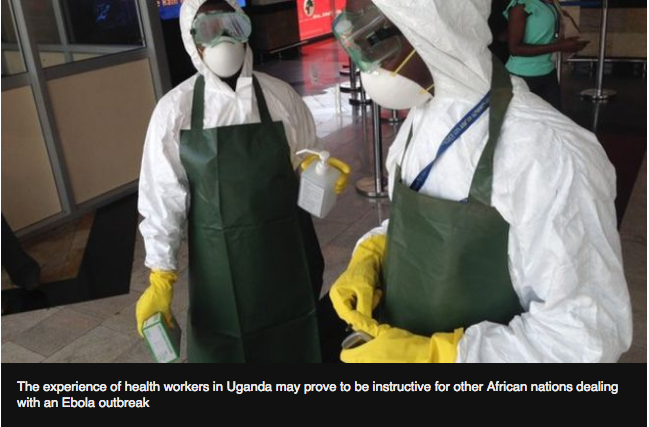Ebola outbreaks have hit Uganda four times since the virus was first discovered. However, compared to West Africa, the Pearl of Africa has been quick to contain it.
But as 2016 winds up, an experimental vaccine has been found to be highly effective against the deadly Ebola virus.
The trial was conducted in Guinea – one of the West African countries most affected by an outbreak of the disease that ended this year.
The final results, published in the British medical journal The Lancet, show that of the nearly 6,000 people to receive the vaccine, all were free of the virus 10 days later.
Among a group of the same size who were not vaccinated, 23 went on to develop Ebola.
The director of the British-based medical research institute, the Wellcome Trust, described the findings as remarkable.

How Uganda manages its Ebola outbreaks
Because Uganda already has some experience with large Ebola outbreaks, the population is well informed and cooperates with the medical facilities.
“The early outbreaks often remained undetected for several months. This allowed a lot of cases to build up in the community and chains of transmission to occur,” said Trevor Shoemaker, a virologist working at the Uganda Virus Research Institute in a joint project with the Centers for Disease Control and Prevention (CDC) in the US.
“Unlike some West African communities or cultures, Uganda is very open in that they want to report (Ebola) cases and not hide them,” Shoemaker said.
Stephen Balinandi is a laboratory specialist at CDC and has worked on many of Uganda’s outbreaks.
“Unlike before when specimens would be shipped to international labs like the US, we are able to test specimens here within a short time,” he says.
“And we send back the results to the healthcare givers in the field, who are able to properly manage the patients.”
More than 11,000 people died during West Africa’s last Ebola outbreak.












